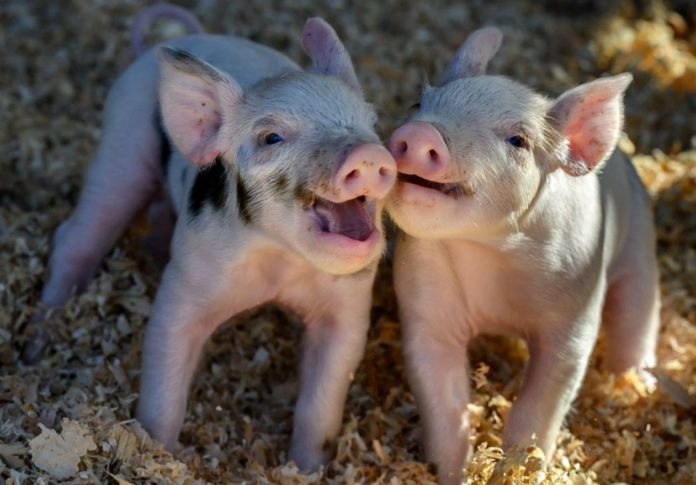Pig cells infected with the novel coronavirus go through a process known as apoptosis, which kills the infected cells and prevents the virus from spreading.
COVID-19, a disease caused by a novel coronavirus, has infected millions of people throughout the world as well as a variety of animals; however, pigs, while infected, do not appear to be sick or contagious.
Scientists believe they’ve figured out why, according to a recent study published in the peer-reviewed academic journal Cell Death Discovery. The unique coronavirus that causes COVID-19, SARS-CoV-2, is thought to be a zoonotic disease, meaning it originated in animals and then spread to people.
This much is universally agreed upon, yet how it made the transition to humans is still a subject of controversy.
It’s unsurprising that as a zoonotic disease, many different sorts of animals have been able to get the virus. Cats, dogs, ferrets, minks, deer, tigers, and hamsters, in particular, have all been known to get the virus, become sick, and, in some cases, spread it to other animals.
Additionally, these were recognized to be reverse-zoonotic transmission, often referred to as zoo-anthroponotic transmission, indicating that they were infected by humans. Scientists knew from the start of the outbreak that pigs could be infected with coronavirus, however, they would need to be exposed to high quantities.
At the time, this was a thrilling finding. Because pigs can get coronavirus but not become ill – and neutralizing antibodies have been discovered – they could be used as a model to research viral immunogenicity.
Why do pigs seem to be immune to the new coronavirus?
To ascertain this, the scientists introduced virus samples to cell cultures generated from human and pig respiratory epithelial cells – the cells that line the respiratory system. While the human cell culture behaved as expected, the pig cell culture behaved in an unexpected manner. Pig cells simply died after being infected with SARS-CoV-2, the nuclei of their cells shredding into bits.
This form of regulated cell death is known as apoptosis, and while the word cell death may sound frightening, it actually means that rather than spreading the infection to other cells, the infected cells just die, stopping the infection in its tracks while inflicting minimal tissue damage. Pigs aren’t the only ones who experience this. Humans have been observed doing the same thing, including in response to the coronavirus. Pig cells, on the other hand, are 100 times more likely to do so. Human cells, rather than undergoing apoptosis, are considerably more prone to experience necrosis. This is another type of cell death, however, it is significantly less controlled than apoptosis. Furthermore, as a cell dies, its contents are released into the environment. As a result, everything spreads and a severe hyperimmune reaction is triggered. To put it another way, necrosis is dangerous, whereas apoptosis can quickly clear the infection without causing the immune system to overreact.
Why are pigs better at apoptosis than humans?
Luis Gimenez-Lirola, an associate professor of veterinary diagnostic and production animal medicine at Iowa State University and one of the study’s co-authors, has a theory.
“We don’t want to over-conclude, but this response is probably something intrinsic to the pig immune system that is innate and not acquired,” he said in a statement.
However, just because something is innate does not mean that we cannot learn from it.
Further studies on pigs could see developments made in Further research on pigs could lead to advancements in coronavirus therapeutic treatments that cause apoptosis, avoiding severe symptoms and assisting in recovery.
To do so, the researchers will try to discover all of the numerous genes that are activated during the process. Then they’ll compare it to other animals, because some animals, such as deer, can carry coronavirus and even spread it without showing symptoms.
As COVID-19 coronavirus infections in animals may result in the development of new variants, finding methods to combat this virus in all infected species is a top priority in the fight against the COVID-19 pandemic.
Source: 10.1038/s41420-021-00781-w
Image Credit: Getty
You were reading: Pigs are already immune to COVID-19, study finds why
